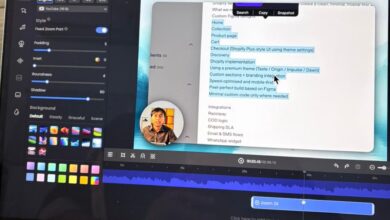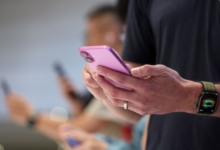WhatsApp new Privacy Policy update explained | Is WhatsApp safe?

Hey, everyone. Today in this article we are going to discuss,
- Is Whatsapp dangerous?
- How does WhatsApp earn money today?
- What changed after the new policy?
- What can we do to improve privacy?
- Are we deleting WhatsApp?
Is Whatsapp dangerous?
We read both Whatsapp and Facebook’s privacy policy. And we found some interesting things. In this article, we’ll understand how WhatsApp makes Money? Is our message secure? And what difference does it make to all of us?
And at the end of the article, we will give some solutions for you to secure your privacy. If you like this article, make sure you share this article with your friends, maybe you will protect someone from a data breach.
The story begins in 2014 when Facebook bought WhatsApp for 19 billion dollars. Search a high amount and that too for a free app? What a terrible deal, right? WRONG! In 2014, the user base of WhatsApp was 500 million users and 1 million users every day!
Today, WhatsApp has a user base of more than 2 billion active users and more than 5 billion downloads. In 19 billion dollars, Facebook not just purchasing WhatsApp’s tech. Facebook was purchasing WhatsApp’s growing user base.
How does WhatsApp earn money today?
Today, the biggest strength of WhatsApp is both kids and seniors alike, everyone has learned how to use it. WhatsApp has become a part of our lives.
One of WhatsApp’s product is WhatsApp business API, where WhatsApp can be used by a business for customer interaction.
Today, my bank sends me my bank balance through a chatbot. When I book an air ticket I get the PNR on my phone. WhatsApp charges money from businesses to provide such services.
A few years ago, WhatsApp had a plan to show its users ads. WhatsApp’s co-founders are against showing advertisements. Facebook wanted to serve ads on the app before the acquisition. A difference of opinion with Facebook lead to WhatsApp co-founder Brian acton quitting the company. He started a new chat app, called “signal”.
A few days ago, Elon musk endorsed “Signal”. Guess! How many people downloaded “Signal”? 75 lakh!
What changed after the new policy?
Can Facebook read your private messages?
The answer is NO!
WhatsApp messages are end-to-end encrypted. Understand this, after you type your message, it is folded or encrypted in a certain way. And when the received paint receives the message, the recipient account can unfold or decrypt it in a certain way. In between Facebook and WhatsApp even they can’t read it.
If this is the same, then what has really changed? When businesses use WhatsApp to reach out, they use third-party tools. If you interact with your bank through WhatsApp and bank uses a third-party tool to interact with you. Then your data will be shared with that third party businesses too.
The problem with too much data
Mark Zuckerberg announced in October 2020 that Facebook plans to integrate its products. Even today, both Facebook and WhatsApp collect data. But they did not indicate their complete data.
With the new update, there will be more data sharing. Model, operating system, browser, IP address, phone number, and device identifier. Which is a little overdone for a messaging app. The problem is, after 8 February, we need to choose. Either we can stop using WhatsApp altogether, which is already a big part of our lives. Or we have to share our data with WhatsApp and Facebook.
If my data is being used to show me personalized ads. Then, personally speaking, it does not affect me too much. After all, these products are free and they earn money by displaying ads. The problem comes when this data is breached/hacked. Many big and reputed companies have frequent data breaches. In a data breach, sensitive data like passwords, financial info is stolen.
A good part about this is we have started talking about data privacy. At the moment, we do not have a strong data protection act in India. The work is ongoing but till the bill does not get passed, we are the ones who have to remain careful.
What can we do to improve privacy?
Firstly, be careful about what app permissions you give.
To read the OTP once, we give the app permission to read SMSs. And then we forget to cancel those permissions.
SETTINGS – APP PERMISSIONS – REMOVE ALL EXCEPT CONTACT AND STORAGE ( IF NOT REQUIRED)
Go to settings and then app permissions. At first, cancel microphone and camera permission for the least used apps.
Facebook gives you a chance to edit your ad preferences. If you don’t want to watch or see a particular ad. Visit: https://m.facebook.com/help/1701730696756992. Then go to this link and edit your ad preferences.
Secondly, don’t rely on one app too much. Often we live passwords and other sensitive data on WhatsApp. Use a password manager to help store passwords. Don’t put your passwords on WhatsApp chats.
Lastly, go to HavelBeenPwned and enter your email address. If your password has been leaked in a data breach, you get a warning. If the password has been leaked change the password on all sites where you have used the same password for login.

Are we deleting WhatsApp?
The answer is, not right now. Whatsapp helps us stay connected to our family. It’s a form of guarantee that a person is on WhatsApp at least. At the same time, we will move to more secure options like Signal. So that our work-related important conversions are more secure.
Conclusion
It is not only about WhatsApp. There are many apps that are secured today. But who may acquire them tomorrow? And change their policies to suit their business practices is something we can’t predict today. The permanent solution would be to have a strong law. If you find this information useful and helpful. And help keep your data more secure then please share this article. So that more people come to know about this.






